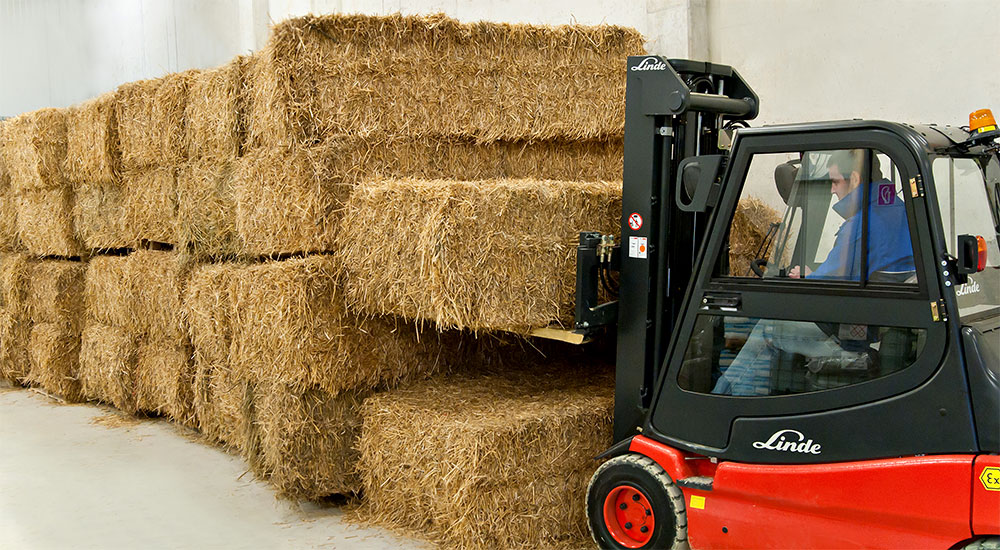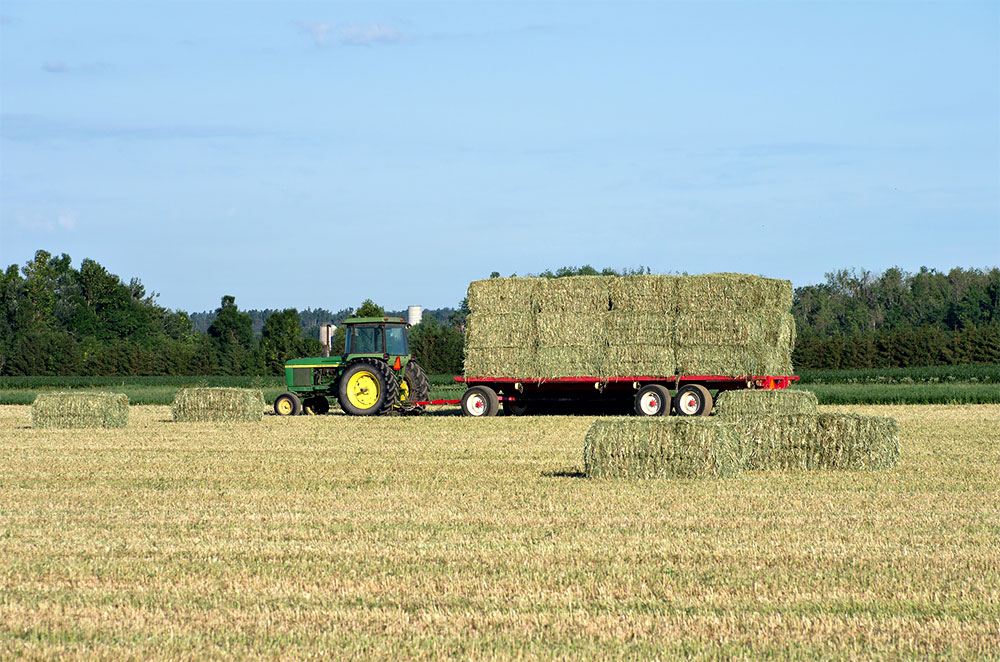
Project
Feedstock supply and logistics system
The sunliquid® plant will convert around 250,000 tons of cereal straw into 50,000 tons of cellulosic ethanol per year. This biomass must be provided in the required quantity and quality at the right time and cost. Therefore, one of the main focuses of the project was to establish a reliable feedstock supply system.
 Feedstock availability
Feedstock availability
The project partners assessed different suitable rural areas that provided enough arable land to secure an abundant supply of sustainable feedstock, even during times of lower harvest. The southwestern part of Romania was identified as being rich of agricultural residues of which a major part is left on the fields to be burnt. Farmers in that region are welcoming the project as it gives them an alternative use for the straw that at the same time will lead to additional income.
Bailing and loading
During the harvest, the straw is compressed on the field into large high-density square bales. The bales are collected immediately after being compressed, then being loaded onto a truck and brought to the storage site.
Feedstock storage
Straw is usually harvested within a few weeks during the year. That is why most of the straw for the process needs to be stored and then transported to the plant just-in-time for production. The bales can either be stored at the farms directly or at interim storage facilities.
Transportation
To avoid long transportation distances and to save costs and CO2 emissions, the required straw will be harvested within a range of 70 km from the plant. In order to implement a transportation and logistics system, the SUNLIQUID partners are tackling the following tasks:
Identification of the most practical shape for the straw bales for manageable transportation, handling and storage
- Evaluation of available storage methods
- Identification of suitable processes for straw baling and storage management
- Consideration and evaluation of different transportation methods such as road, rail and water transportation

 Feedstock availability
Feedstock availability Identification of the most practical shape for the straw bales for manageable transportation, handling and storage
Identification of the most practical shape for the straw bales for manageable transportation, handling and storage